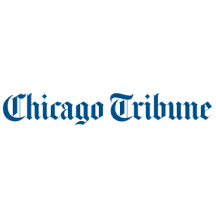


CHICAGO (AP) — The first civil trial over a Boeing 737 Max crash in Ethiopia more than six years ago opened Wednesday before a federal court jury that was asked to decide how much the American aerospace company must pay to the family of one of the 157 victims.
The eight-person jury in Chicago, where Boeing used to have its headquarters, had been expected to set financial compensation amounts for the families of two women who were among the people who died when Ethiopian Airlines Flight 302 plunged to the ground in March 2019. But moments before jurors arrived in the courtroom for opening statements, U.S. District Judge Jorge Luis Alonso was notified that one of the cases had been settled out of court.
“We are grateful,” Fredrick Musau Ndivo, the father of Mercy Ndivo, a 28-year-old mother originally from Kenya, told the judge after his family reached a settlement with Boeing. “We wish you the best and wish the legal system of America to hold up the rights and justice for the people for all walks of life.”
The family's attorney, Robert Clifford, who is representing many of the victims' relatives, told the judge that two more pending cases also were settled recently. Boeing negotiated pre-trial settlements in most of the dozens of wrongful death lawsuits that were filed against the aircraft maker after the crash.
Details of the settlements were confidential and not disclosed. Lawyers say less than a dozen lawsuits remain unresolved.
The trial that proceeded Wednesday centered on the death of Shikha Garg, a United Nations consultant. A settlement in the case could still be reached at any stage of the trial.
Like a number of the other passengers, Garg, a consultant for the United Nations Development Programme, was on her way to attend a U.N. environmental assembly in Nairobi, Kenya. She is survived by her husband and parents.
In his opening statement to the jury, Shanin Specter, the family's lawyer, painted a picture of a young and accomplished woman. A citizen of India, Garg was also a newlywed.
“She was a beautiful person inside and out,” the lawyer said in his opening statement.
Specter turned on a screen that showed a photo of a smiling Garg as a bride just months before she boarded the deadly Ethiopian Airlines flight, dressed in a sari and holding flower garlands in line with Indian tradition. The then-new Boeing Max crashed minutes after taking off from Addis Ababa Bole International Airport.
Specter called Garg’s death “senseless” and “preventable,” and he showed jurors a March 10, 2019, picture of what he described as an “enormous crater” left in the ground after the plane nosedived.
“Money is an entirely inadequate substitute for the life of Shikha Garg," Specter said.
Boeing lawyer Dan Webb, a former U.S. attorney, urged jurors to focus on “fair and reasonable” compensation for Garg's family.
Jurors won’t have to weigh the aircraft maker’s liability in the crash because Boeing has already accepted responsibility for it and for a similar 737 Max disaster off the coast of Indonesia less than five months earlier. But they will be asked to award damages and decide compensation for matters such as burial expenses, loss of income, and grief suffered by immediate family members.
One contentious point is whether Garg suffered pain in her final moments before death.
Webb said he would focus during the trial on the mechanics of the crash with testimony on G-force data from an aerospace medicine expert who is also a pilot.
Since the crash had no survivors, Boeing’s expert testimony would provide the best snapshot of passengers’ experiences and support the company's claim that they didn’t experience physical injury before impact, Webb said.
“There would not have been time for them to feel any physical pain when they hit the ground,” he said.
From nearly the moment pilots flying for Ethiopian Airlines took off in their new Boeing jetliner, they encountered problems with the plane.
A device called a stick shaker began vibrating the captain’s control column, warning that the plane might stall and fall from the sky. For six minutes, the pilots were bombarded by alarms as they fought to fly the plane before entering a final nosedive at nearly 700 miles per hour.
The trial arrives after years of litigation overshadowed by the aerospace giant’s broader legal troubles.
U.S. prosecutors charged Boeing with conspiracy to commit fraud in connection with both crashes, accusing the company of deceiving government regulators about a flight-control system it developed for the 737 Max. In both crashes, the software had pitched the nose of the planes down repeatedly based on faulty readings from a single sensor.
The Justice Department has asked a federal judge in Texas to dismiss the felony charge and approve its pending agreement with Boeing. If the judge signs off, Boeing would avoid prosecution by paying or investing an additional $1.1 billion toward fines, compensation for victims’ families, and internal safety and quality improvements.
__
Yamat reported from Las Vegas.

 Associated Press US News
Associated Press US News
 The Traverse City Record-Eagle
The Traverse City Record-Eagle Fast Company
Fast Company Chicago Tribune
Chicago Tribune Local News in Kentucky
Local News in Kentucky Raw Story
Raw Story AlterNet
AlterNet CNN Politics
CNN Politics